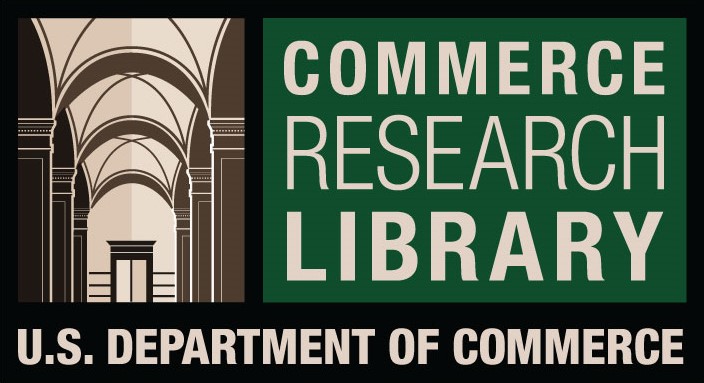Multicultural Education of Based Training at University of Muhammadiyah Malang
DOI:
https://doi.org/10.61841/wsfe5w25Keywords:
Education, Multicultural, Training, P2KK UMMAbstract
Multicultural education is an important aspect in facing the educational revolution 4.0. Education becomes a way to embed multicultural awareness to students by experiencing the multicultural process directly. The students are going to learn how to live and work together in a difference. This study aims to dig out how the implementation of multicultural education based on training at University of Muhammadiyah Malang. The subjects of this study were five Non-Muslim participants who had attended P2KK (Personality and Leadership Training Program) for a week. The instrument used was an intense interview and document review that were analyzed by using descriptive qualitative with a phenomenological approach. The results of this study indicates that Non-Muslim participants who joind the training were aware of their existence and ready to live and cooperate with other participants who had different belief or faith. In addition, they assumed that P2KK system is worthy for Non-Muslim participants without any discrimination.
Downloads
References
[1] Klaus Schwab, The Fourth Industrial Revolution. Switzerland: World Economic Forum, 2016.
[2] P. S. Utami and H. Cahyono, “Implementasi Pendidikan Berbasis Multikultural Melalui Model Pembelajaran Problem Based Learning Pada Mahasiswa Prodi PPKn Universitas Muhammadiyah Ponorogo,” J. Dimens. Pendidik. dan Pembelajaran, vol. 6, no. 1, 2018.
[3] H. Baharun and R. Awwaliyah, “Pendidikan Multikultural dalam Menanggulangi Narasi Islamisme di Indonesia,” J. Pendidik. Agama Islam (Journal Islam. Educ. Stud., vol. 5, no. 2, p. 224, 2017, doi: 10.15642/jpai.2017.5.2.224-243.
[4] D. Rosyada, “Pendidikan Multikultural Di Indonesia Sebuah Pandangan Konsepsional,” SOSIO Didakt. Soc. Sci. Educ. J., vol. 1, no. 1, 2014, doi: 10.15408/sd.v1i1.1200.
[5] Sulalah, Pendidikan Multikultural: Didaktika nilai-nilai Universitas Kebangsaan. Malang: UIN- Maliki Press, 2011.
[6] G. Morgan, “ Rethinking Multiculturalism: Cultural Diversity and Political Theory . Bhikhu Parekh ,”
The Journal of Politics, vol. 64, no. 1. pp. 272–274, 2002, doi: 10.1086/jop.64.1.2691679.
[7] James A. Bank and Cherry A. McGee Banks, Multicultural Education, 8th ed. United States of America: Courier Kendallville, 2013.
[8] Zakiyuddin Baidhawy, Pendidikan Agama Berwawasan Multikultural. Soditan: Penerbit Erlangga, 2005.
[9] S. Setiawan, “Peran Komunitas Young Interfaith Peacemaker Community Indonesia Di Surabaya Dalam Menumbuhkembangkan Sikap Toleransi Antar Umat Beragama,” Kaji. Moral dan Kewarganegaraan, vol. 6, no. 01, pp. 136–150, 2018.
[10] V. Benet-Martínez, Multiculturalism: Cultural, Social, and Personality Processes, no. January 2012. 2012.
[11] P. Shannon-Baker, “A Multicultural Education Praxis: Integrating Past and Present, Living Theories, and Practice,” Int. J. Multicult. Educ., vol. 20, no. 1, pp. 48–66, 2018, doi: 10.18251/ijme.v20i1.1518.
[12] A. Suradi, “The Development of Oriented on Multicultural Islamic Religious Education in School,” J. Educ. Learn., vol. 12, no. 3, p. 493, 2018, doi: 10.11591/edulearn.v12i3.8679.
[13] S. Mishra and C. B. Kumar, “Understanding Diversity: A Multicultural Perspective,” IOSR J. Humanit. Soc. Sci., vol. 19, no. 9, pp. 62–66, 2014, doi: 10.9790/0837-19946266.
[14] W. Akihary, P. S. Apituley, and W. Akihary, “The implementation of multicultural education in German language learning,” vol. 13, no. 4, pp. 466–473, 2020, doi: 10.11591/edulearn.v13i4.13469.
[15] T. Budirahayu, M. M. Wijayanti, and K. Baskoro, “Understanding the multiculturalism values through social media among Indonesian youths,” Masyarakat, Kebud. dan Polit., vol. 31, no. 4, p. 427, 2018, doi: 10.20473/mkp.v31i42018.427-439.
[16] R. M. Cutri and E. F. Whiting, “The emotional work of discomfort and vulnerability in multicultural teacher education,” Teach. Teach. Theory Pract., vol. 21, no. 8, pp. 1010–1025, 2015, doi: 10.1080/13540602.2015.1005869.
Downloads
Published
Issue
Section
License

This work is licensed under a Creative Commons Attribution 4.0 International License.
You are free to:
- Share — copy and redistribute the material in any medium or format for any purpose, even commercially.
- Adapt — remix, transform, and build upon the material for any purpose, even commercially.
- The licensor cannot revoke these freedoms as long as you follow the license terms.
Under the following terms:
- Attribution — You must give appropriate credit , provide a link to the license, and indicate if changes were made . You may do so in any reasonable manner, but not in any way that suggests the licensor endorses you or your use.
- No additional restrictions — You may not apply legal terms or technological measures that legally restrict others from doing anything the license permits.
Notices:
You do not have to comply with the license for elements of the material in the public domain or where your use is permitted by an applicable exception or limitation .
No warranties are given. The license may not give you all of the permissions necessary for your intended use. For example, other rights such as publicity, privacy, or moral rights may limit how you use the material.









